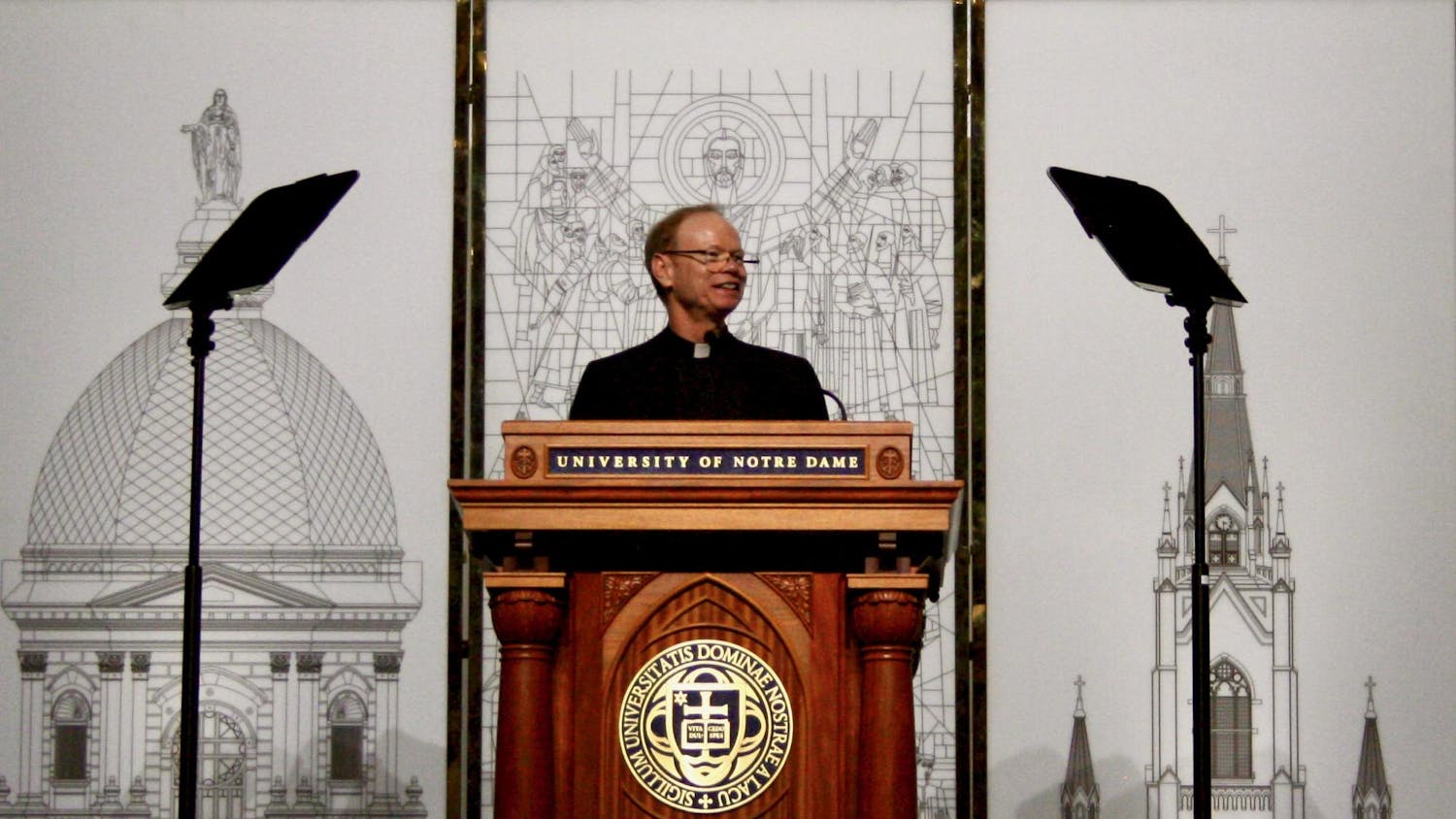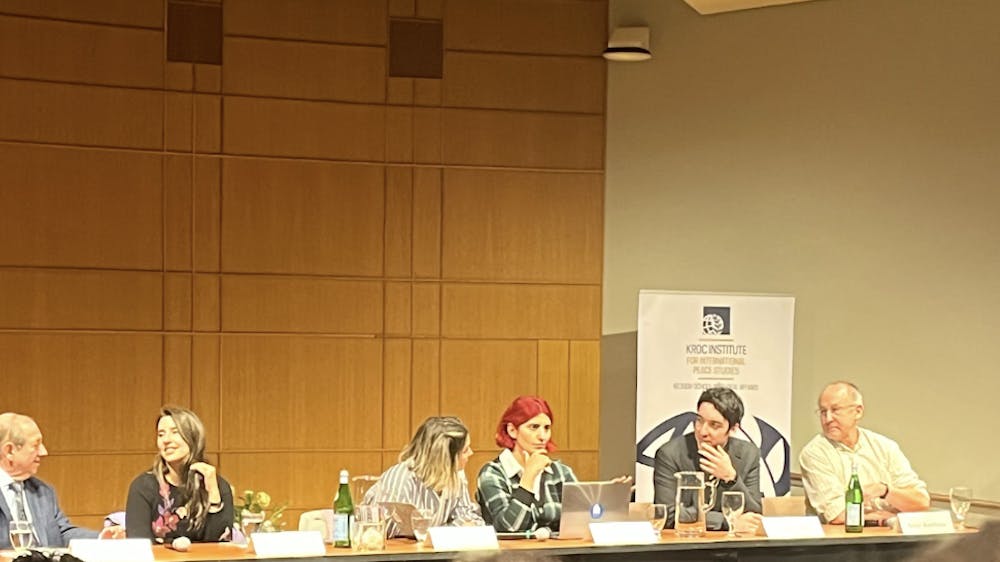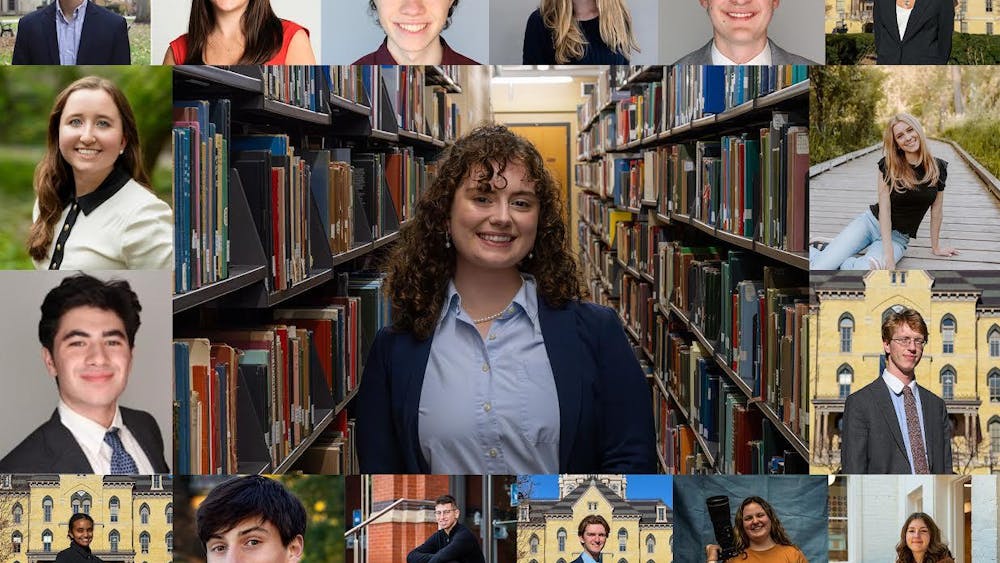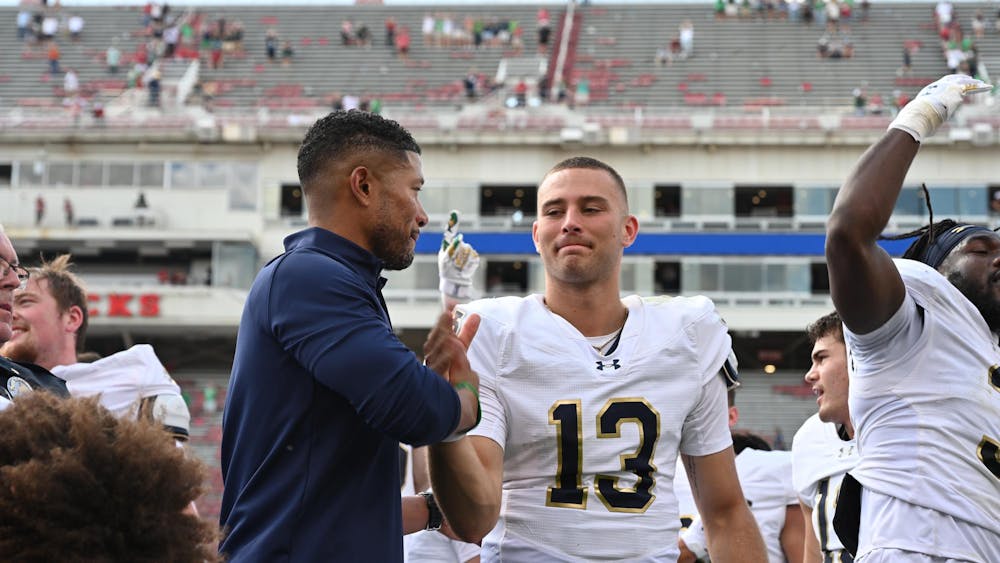Dan Vera, the inaugural winner of the Letras Latinas/Red Hen Poetry Prize, will perform a public poetry reading from his book "Speaking Wiri Wiri" on Wednesday night. Vera will also visit classes and contribute to the Latino Studies Oral History project, according to Francisco Aragon, director of Letras Latinas, the literary initiative within the Institute for Latino Studies.
Vera published "Speaking Wiri Wiri" in 2013. He said it consists mostly of stories about his family’s immigration from Cuba to South Texas.
“It also has some poems that are really meditations on, I believe, what it means to be an American, what it means to be part of this larger narrative,” Vera said.
Aragon said the Letras Latinas/Red Hen Poetry Prize was designed to support the publication of poets’ second or third books. "Speaking Wiri Wiri" is Vera's second book of poems, according to his website.
“It’s not easy to publish books of poetry," Aragon said. "Many times, presses are really shy and reticent about publishing books of poetry because it’s not a big money maker.”
Vera will visit two classes: “Latino/a Poetry Now,” taught by Aragon, and “Migrant Voices,” taught by Marisel Moreno, associate professor of Romance Languages and Literatures.
Associate professor of English Orlando Menes served as the final judge of the prize. He said Vera is “a poet haunted by memory, haunted by place.”
“Another person would have avoided this agonistic search for his roots — both linguistically and culturally — but Vera chose instead to persevere in connecting with his ancestral homeland,” Menes said.
Aragon said the University brings writers like Vera to campus in large part to help students better understand poetry — in this case, Latino poetry.
“Oftentimes poetry is viewed as this obscure, difficult subject matter, and I think that when students have the opportunity to meet and speak in the flesh with a living poet, it can demystify the art,” he said.
Aragon said the reading of the poems out loud was crucial to further understanding, and that was part of the thought process behind having the public reading.
“A poem does not reach its full potential until one hears it loud,” he said. “I’ve had the experience where students have actually come up to me afterward and said it wasn’t until actually hearing the poet read his or her work in person, that something really clicked even more so than just encountering the work on the page.”
Vera said he looked forward to spending time with students and hoped they would begin to connect their own personal histories with literary expression.
“I would like my time in these classes to be a reminder of the ways that poetry and writing in general can allow us to mine history," he said. "Our own family histories can have as much to say about where we are as a society and as a country as our formal history.”
Vera said he hopes he and the students he meets can discuss “questions about not only the ways in which language can hold us together as a society but also how it can inform our sense of plurality and the richness of what’s led us here and held us here.”
He said “non-poetry people” could still enjoy the public reading.
“Humor is something I really enjoy working with. Most people have a sense of poetry as extremely severe and gray, and it can be that … but it can also be damn funny. Life is a lot like that too,” Vera said.
The reading will take place at 7:30 p.m. in 210 McKenna Hall, and it will be preceded by a reception at 6:15 p.m. in the East Lounge on the second floor of McKenna Hall.
Read More
Trending









